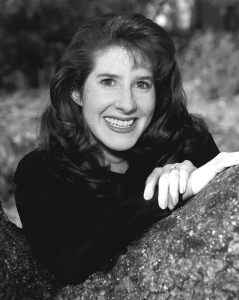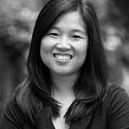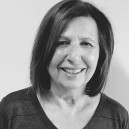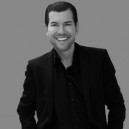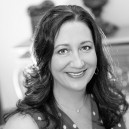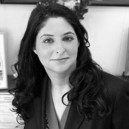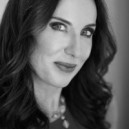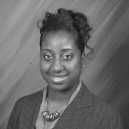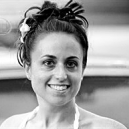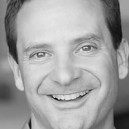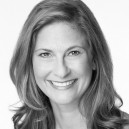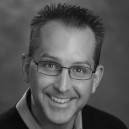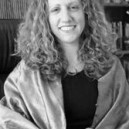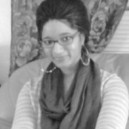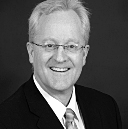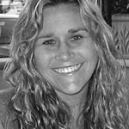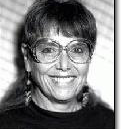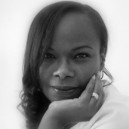Sarah Blake
Eating Disorder Therapist
Some therapists see a wide variety of client issues during their work, then there are therapists like Sarah Blake who work with a specific set of clients on a very specific issue. Blake has always been sure she liked helping others and she was pretty sure even as a young girl that she wanted to work with eating disorders. Thus began a long career working with patients with eating disorders -- including a few detours as a domestic violence counselor, and a therapist for children with severe mental issues -- that has given her plenty of experience to talk about. Now she runs her own business, battles constantly with Quickbooks, and continues to help a lot of people suffering from very serious disorders. Luckily for us, she was willing to talk about all of that at-length when we e-mailed her. Enjoy!
What is it that first made you want to become a counselor?
When I was a child, probably as young as 5th grade, I was the person that all my friends came to, to sort out their problems. In sixth grade, when one of my friends was stuck on the school bus with my siblings in a storm, I remember talking down his hysterical Mom, when she called our house to see if my siblings had gotten home. We had many phone calls that afternoon, and by the time everyone got home, she was calm. Helping others just seemed to fit for me. I had aspirations to be on Broadway, but that is a story for another article.
Can you tell us a little about your career up until now?
I was pretty sure I wanted to work with eating disorders. I had been interested in the topic throughout adolescents and had read all the books that were out at that time, "The best Little Girl in the World," being the one that stands out the most as the other, Steven Levenkron, is still working in the field today. As a result of this interest, I wanted to make sure when I was in graduate school, I had a field placement in eating disorders. That did not happen until my second year. My first year, I worked in a domestic women's shelter and began my training in trauma and abuse. When I worked in an eating disorder hospital in Philadelphia the second year, it was so interesting to me, and seemed a perfect fit. Four months after I graduated, I was hired at that same center as an employee. I took a detour from my eating disorders career to work as a Domestic Violence Social Worker, which was a great job, working in three hospitals on the "main line" in Philadelphia, primarily training staff and the public about how to detect someone who was being abused. I saw some clients, as well. This was a grant funded position, so it did not last forever. At the same time I was working as a fee for service therapist for a large counseling group and was seeing eating disorder client and other clients with women's issues. When I left my position at the main line hospitals, I moved on to my single career mistake. I jumped into a position as a social worker in a program for children who were seriously mentally disturbed. I knew very early on that this was not something I wanted to do, and I found a new position, as soon as I was able. (I also learned a lesson that even though I wanted to do the right thing, telling my boss at 3 months on the job that I was looking for another job and while she was looking to replace my co-worker, she should look for a second person to replace me....OY! Do not do this! She made my next three months miserable.) After this detour I return to what I love and spend the next 3 years working for the Renfrew Center, one of the largest eating disorder programs in the country. I was restless though, and I had not found my perfect fit yet, so I took another detour to a wonderful place called Carebridge, which is an EAP/worklife solutions company. This was by far the best company I ever worked for. However, life brought our family to Maryland and 6 years working for the Center for Eating Disorders (currently at Sheppard Pratt, but was named differently when I started there.) I was a jack of all trades in this position. I started as their admissions coordinator and then moved to being an outpatient therapist, helped to manage a lot of their on-line presence, helped to organize their yearly symposium, did eating disorders talks in the community, and the list went on. This was a wonderful fit for me, and might have been my last job stop. Then my husband was laid off. This might sound crazy, but it seemed that the only thing I could do was leave my job and start my own private practice. I felt like my earning potential had hit the ceiling and I needed to do something more, and jumping ship to go into my own practice was the only thing I could think of. Thus, over 3 years ago, Sarah Blake Psychotherapy, LLC was born. This past August, this then became Blake Psychotherapy & Associates, when I hired two other therapists to work for me. (So in essence, my plan worked - and my husband is also gainfully employed.)
What are the common eating disorders you tend to run into during your practice?
In my office, I most often see Anorexia Nervosa and Bulimia Nervosa. On occasion I will see someone with Binge Eating Disorder, but that is less common. Often, when a person doesn't fit nicely into a box, they have something called Eating Disorder Not Otherwise Specified. However, to make things more complicated, in May, some of these names will be changing when the DSM-5 comes out. (The fifth edition of the Diagnostic and statistical manual -- also known as the bible by which social workers, psychologists, professional counselors and anyone else working in this field classify what their clients struggle from.)
How are you able to help people with these disorders?
This is a complicated question as it depends on how severe the disorder is. Sometimes, the best thing I can do for the person is to get them into a higher level of care - an inpatient eating disorder program or a day program or intensive outpatient program -- as they may be too sick to just come in for outpatient treatment. If this is not the case, then helping them is often about getting to what is behind the eating disorder. Most people think that eating disorders are about food and are shocked when I say that they actually have very little to do with food. The behavior around the food, or weight, or exercise or the absence of any of these are all symptoms of a larger problem. With many patients helping them is about finding the underlying issues while also working on stopping the cycle of the symptoms.
Was it difficult to start your own practice, and do you have any advice for those looking to do so?
I was surprised how easy it was to start my own business. As with everything there are hoops - finding the right office space, having enough money for the start up costs, coming up with a business/marketing plan... When I started this practice I did not know a thing about business. The first thing I did was to start to read. There are a number of great books on the subject and a few of them are more up to date then what I read. Lynn Grodsky is a good author to read if you want to start a private practice. I contacted a friend who was an attorney to ask question about the LLC vs. any other type of start up I might do, and took out a business book from the library so I could understand the differences between an EIN number and a tax id (who knew -- they are the same thing??!!). When in doubt, hire someone to help with any of the legal stuff, especially in forming your LLC or S-Corp or whatever you are forming, so you know you didn't forget to dot an i. The same goes for accounting - Quickbooks is the program of choice for all accountants I have talked to. The program happens to hate me, but I still have had to make peace with it and find aay to use it. Really the most difficult part of starting your practice is figuring out where your clients are going to come from. I was blessed in that this was not as hard as I thought, either. Having come from The Center for Eating Disorders and having left on good terms, I was able to get referrals from their program. I was also able to market to lots of outside providers - some I know and many I didn't to bring in other referrals. I learned about having an on-line presence (this is so important these days), and worked on optimizing this.... All of these different steps are important. Marketing, once you have your location in place, is going to be your best friend, relationship marketing and on-line marketing being the best techniques of the moment. After the success I had with setting up my own practice, I was going to write a book about how to set up a successful eating disorder practice. However, with so many books on the market about how to open a successful practice, I am instead helping others to start up their practice. It is great to be able to see others succeed, as well.
What have been some of your greatest hurdles throughout your career?
Having gone from being a student to being an employee for my first position, I couldn't get the staff to see me differently. Try as I might, they couldn't see me as someone who could move beyond the role I played as a student. I finally had to leave the job, so I could get a fresh start, where I was a social worker, and not the "previous student." The second biggest hurdle was choosing the wrong job when I worked at the Devereux center with the young children. Sometimes it is so hard to try and do the right thing and then be punished for doing what you know is right. This happens to so many people in all sorts of situations, not just mine, but I have decided, despite my situation that occurred in my career, to never stop doing the right thing. After that, it has been mostly smooth sailing. Having had those two field placements opened a lot of doors for me later. If you do not have experience it becomes very hard to obtain experience. I know that sounds like something out of a fortune cookie, but it is what I hear from so many people these days, who are looking for jobs.
Do you have any final words of wisdom for someone looking to become a eating disorders therapist?
What I always tell people when they ask this question is to get experience as early as possible -- if you are reading this and you are not yet in a masters program... get into the trenches. Get a job as a mental health tech at an eating disorders hospital, or the equivalent at a residential program. Get involved with the National Eating Disorders Association or your local Eating Disorders Network. If you are in a graduate program, see if you can get a field placement that is in an eating disorders program or is in a setting, like a college, where you will end up working with teens with eating disorders. Without the experience, it is hard to get into the field. If you have any history of an eating disorder yourself - get healthy. You cannot do a good job helping others with their eating disorder, if you are not yet over yours.







